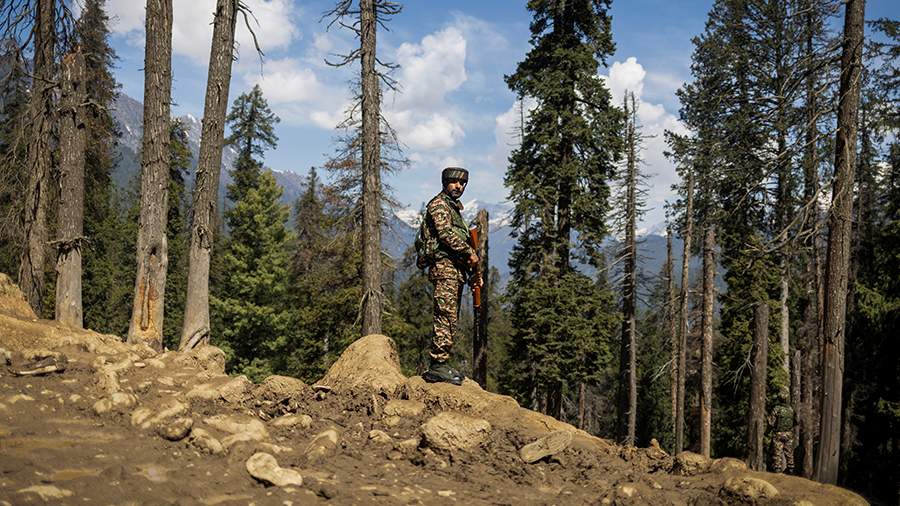Ex-Russian Ambassador to New Delhi assessed the likelihood of a conflict between India and Pakistan
- Новости
- Policy
- Ex-Russian Ambassador to New Delhi assessed the likelihood of a conflict between India and Pakistan

The conflict between New Delhi and Islamabad in connection with the terrorist attack in the Indian city of Pahalgam is unlikely to find a military solution, but it is difficult to predict the consequences of the suspension of the Indus Waters Treaty. On April 24, Sergey Velichkin, ex-Ambassador of the Russian Federation to India, Nepal and Bangladesh, told Izvestia.
"An unpleasant event has happened, there is nothing good about it. It seems that it will not be so easy to get out of it, but I absolutely do not see a military solution, a major war between the two states," he said.
The former ambassador stressed that the punitive measures taken against Pakistan will have a strong impact on the country and the region.
"Among the measures taken [in relation to Pakistan], there are things that go much further. In particular, the issue of the waters of the Indus River. This issue was considered resolved in Indian-Pakistani relations back under Jawaharlal Nehru. As an expert, this moment makes me wary. <...> This is something new. It is difficult to say what this will lead to now, but there is a clear disparity of forces, the Indian government is acting confidently and expects international support and reaction to a purely terrorist attack," Velichkin said.
He noted that in the last few years, it was believed that Indian-Pakistani relations had softened. At the same time, this "warming" did not concern major interstate problems, including the issue of the disputed territory of Jammu and Kashmir, the expert emphasized.
"India considers the Kashmir issue completely closed — there is the Indian state of Kashmir, there is the part of Kashmir occupied by Pakistan. There was even a certain tightening of the position after the government led by Narendra Modi came to power. <...> These events (terrorist attack. — Ed.) mark a new stage," the expert recalled.
According to him, India has long believed that Pakistan was created on an artificial basis. Recently, New Delhi has witnessed a growing process of national isolation and internal political tension, which is why it did not consider the neighboring country to be a rival. He recalled that the authorities consider their success to be the relegation of the Pakistani agenda to the background.
"For them (the Indian authorities. The terrorist attack in Pahatgalma is ridiculous in its brutality. It requires a sharp rebuff at the level of the image that this government has created for itself. It is a powerful country that claims to be a global power, and it has no rivals in the region," concluded the former Russian ambassador.
On April 22, a terrorist attack took place in India near the city of Pahalgam in the disputed territory of Jammu and Kashmir, which killed 27 civilians. According to News18 India, the Resistance Front, which is recognized as a terrorist organization in India, claimed responsibility for the incident.
On April 24, New Delhi suspended the Indus Waters Treaty, banned entry for Pakistani citizens to the country, and cancelled previously issued visas. The Attari checkpoint was also closed, and the military advisers of the Pakistani Embassy were declared persona non grata.
Islamabad responded to New Delhi by suspending visas and declaring Indian advisers persona non grata. Pakistan has also closed its airspace to India. In addition, Islamabad called New Delhi's reaction to the terrorist attack unfair and politically motivated.
Переведено сервисом «Яндекс Переводчик»
